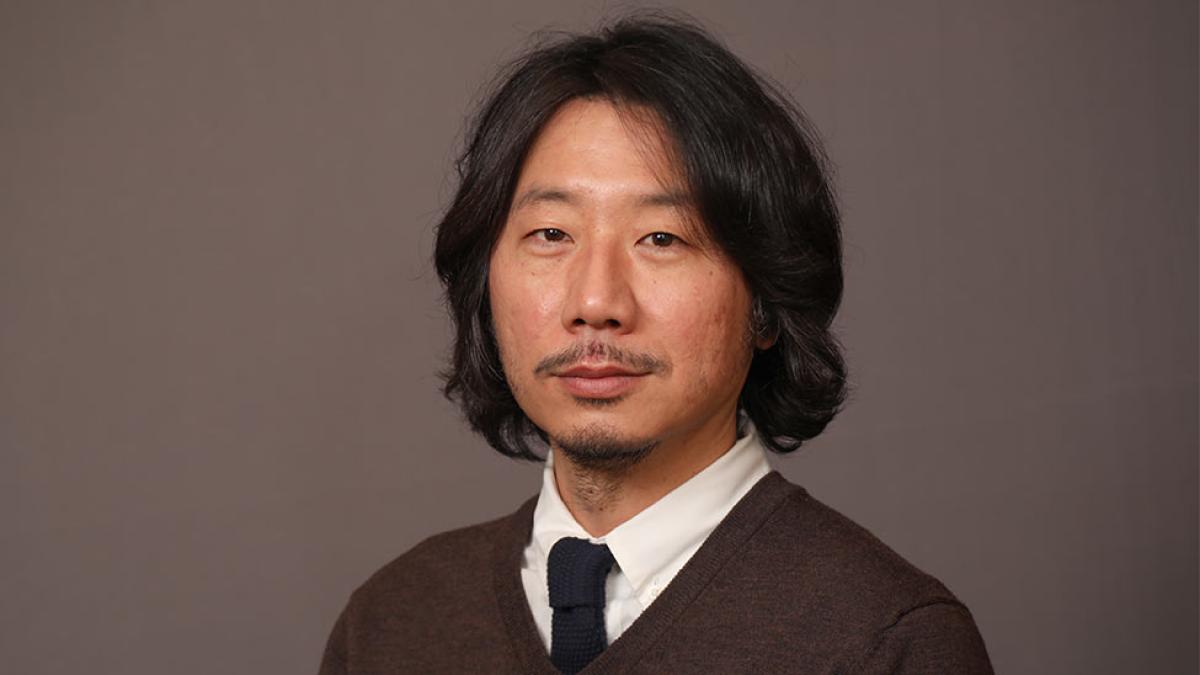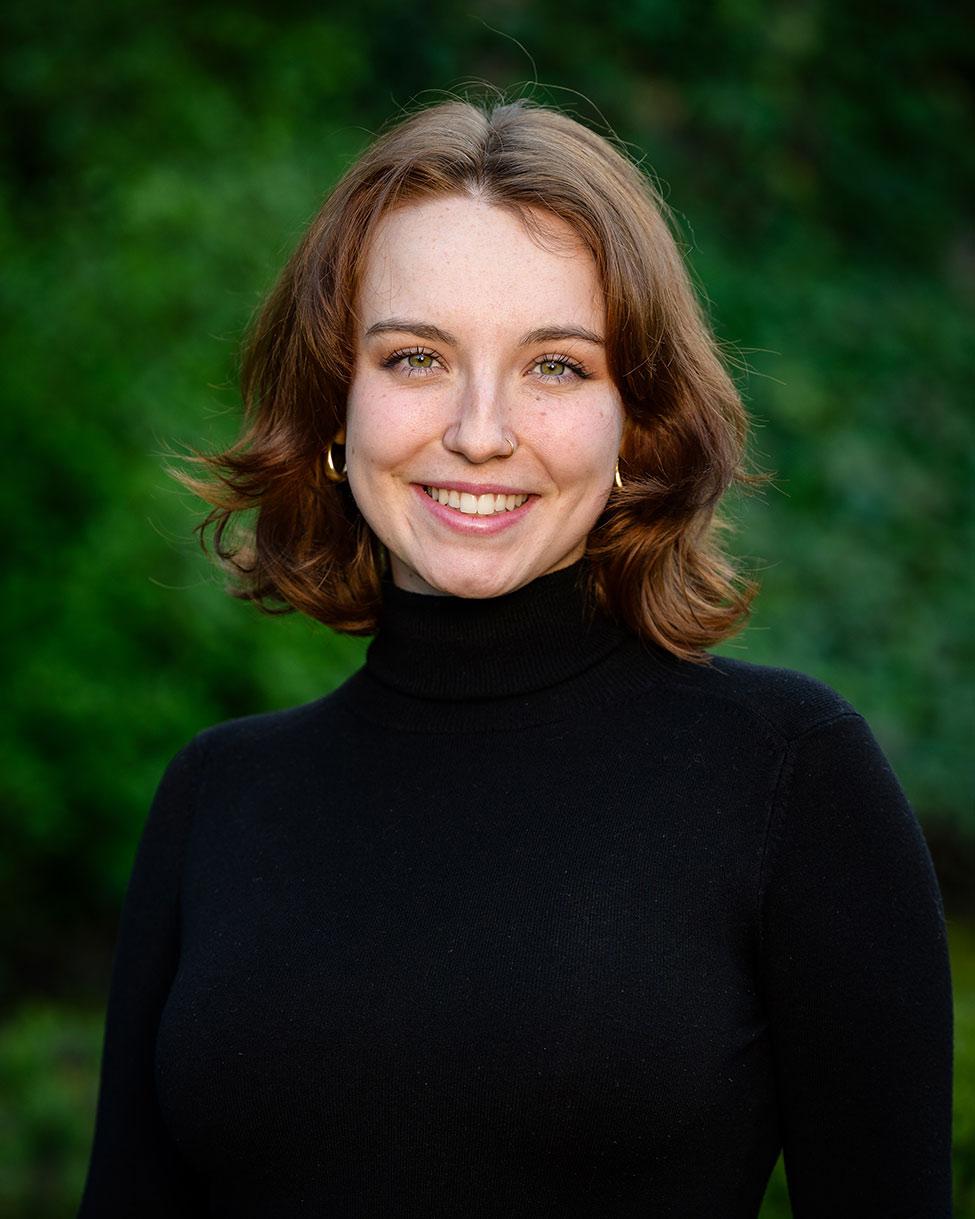
The 15 Colleges Producing The Most Homegrown Entrepreneurs
University Business ranks Pace University as one of the top 15 institutions producing the most homegrown entrepreneurs. In fact, 38% of Pace graduates launched their own business.
Mentorship Matters: Q+A with Charlotte MacNeal '25
Serving as a peer leader, resident assistant, and volunteer, Psychology major Charlotte MacNeal's diverse experiences and mentorship roles have shaped her journey. With internships in MedTech and impactful research on intergenerational trauma, she credits the supportive faculty and plans to pursue a career in consulting for MedTech companies upon graduation, offering insightful advice to current students.
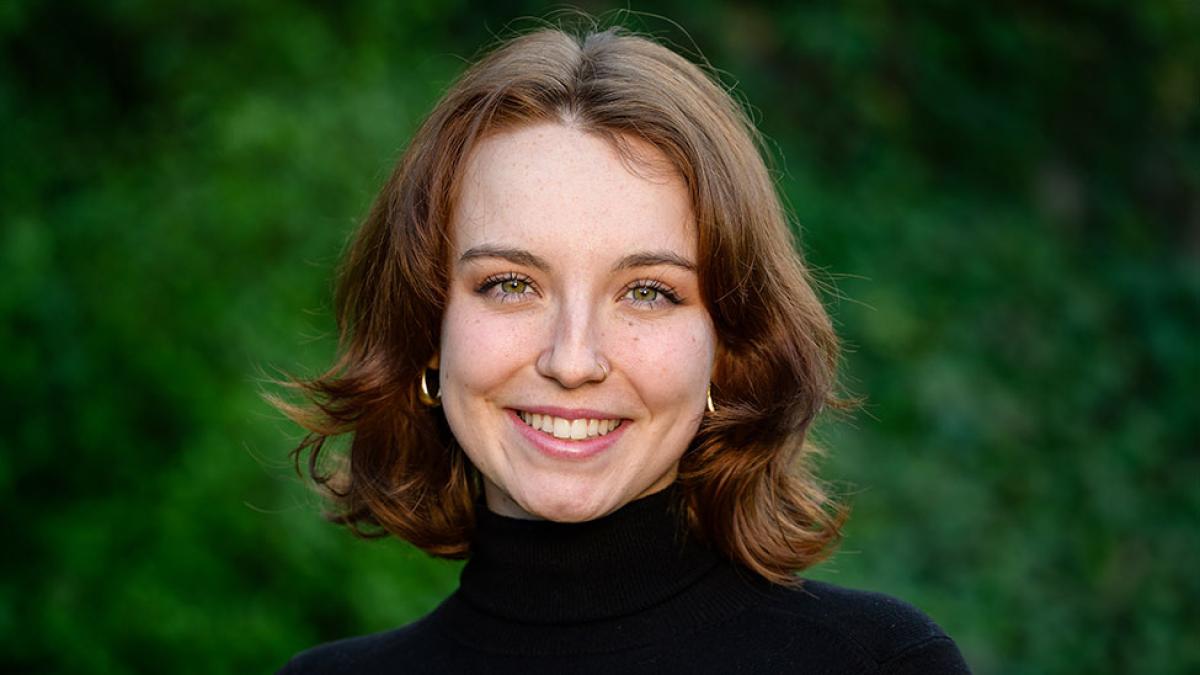

Charlotte MacNeal
Class of 2025
Bachelor of Arts in Psychology
As a Pace student, Charlotte serves as a peer leader, resident assistant, and volunteer in a peer mentoring program that supports a Pace student with physical mobility challenges.
Please tell us more about these experiences and how they have been meaningful to you.
Mentorship is a cornerstone of every good system, and at Pace, I’ve had the opportunity and privilege to be both a mentee and a mentor. I have found my work as a peer leader (a co-instructor and helping hand in University 101 classes as freshmen transition into college life), resident assistant, and volunteer mentor for a Pace student with mobility challenges to be both humbling and rewarding. These latter experiences especially have offered me new perspectives from diverse individuals and reminded me that every point of view matters. I feel incredibly grateful to participate, however small, in the growth and development of these amazing students on their academic journeys.
How did you become interested in pursuing a Bachelor of Arts in Psychology?
I have wanted to study psychology since childhood. I also believe that my people-oriented skills are my greatest strengths, and I wanted to see what would be possible if I cultivated these aspects of myself. I have also always been fascinated with the way the mind works and I have loved learning about the different aspects in my classes.
Why did you choose to attend Pace?
I chose Pace because I wanted to be in New York City, with its wealth of opportunities and diversity of experiences, but was also excited to be accepted into the Honors College and liked both the mission of our university, Opportunitas, and was inspired by the “Go Getter” persona of the Pace student. I am happy with my decision, as I have truly enjoyed my time here thus far.
What have your experiences been like with the New York Psychology Department? How has faculty been instrumental in your academic journey?
My experiences with the New York Psychology Department have been extremely positive. The faculty are very knowledgeable and facilitate fascinating conversations in classes, and I have found course material to be applicable both within and outside the classroom. Professor Michele Zaccario, PhD, the co-director of undergraduate programs in the department, has been an amazing resource and mentor, helping me become involved with volunteer mentoring opportunities, as well as advocating on my behalf for career advancements. I am incredibly grateful for her support throughout my time as a student.
I chose Pace because I liked both the mission of our university, Opportunitas, and was inspired by the ‘Go Getter’ persona of the Pace student. I am happy with my decision, as I have truly enjoyed my time here thus far.
What internships have you had as a student?
I’ve had an internship each summer since I started at Pace. The first was a copywriting role at Materna Medical, a women’s health company, through which I wrote blog posts for device users while complying with FDA regulations on marketing for medical devices, as well as promoted Materna’s SEO and SEM. I later worked as a business strategy intern for Mind Machine, a consulting company for MedTech (medical technology) startups. In that role, I carried out competitive SWOT analysis and SEO optimization, wrote blog content, engaged in social listening, and did general marketing work. Both were rewarding, educational experiences propelling me towards my dream of working in MedTech.
Please let us know of other research opportunities you have been engaged in at Pace.
I had the privilege of participating in the Provost Office’s Student-Faculty Undergraduate Research Program last year with Professor Judith Pajo, PhD, an amazing mentor who offered to be my principal investigator. We collaborated closely to research the phenomenon of intergenerational trauma, revealing a positive correlation between familial and personal trauma, and indicating support for the cyclical theory of trauma. During this process, I had the opportunity to learn more about the ethics behind human research, data collection techniques, statistical analysis, presentation of data, and so much more. In addition, I was able to complete the Collaborative Institutional Training Initiative (CITI Program), Social and Behavioral Education focus, which is approved by the Institutional Review Board (IRB).
What would you like to do upon graduation/what are your career goals?
I plan to work in consulting for MedTech companies. My psychology degree has provided me with skills for developing professional relationships, understanding of consumer attitudes, applying research design, and conducting qualitative and quantitative analysis, and my minors in Neuroscience and Public Health (College of Health Professions) also lend themselves to this plan, supporting my goal of understanding the medical world in order to meet the needs of the public.
What advice would you like to give to our current students?
Remember that life only happens one day at a time. You only have to do your best for today, so be kind to yourself, work hard, and remember that there are many different things that make up a good life.
Pace University Awarded Two National Endowment for the Humanities Grants for Experiential Education
Pace University was recently awarded $350,000 from the National Endowment for the Humanities (NEH) to advance experiential learning in humanities courses in partnership with cultural and service organizations in New York City. As a result, Pace University will serve as a central hub for humanities while showcasing its leadership in experiential education.
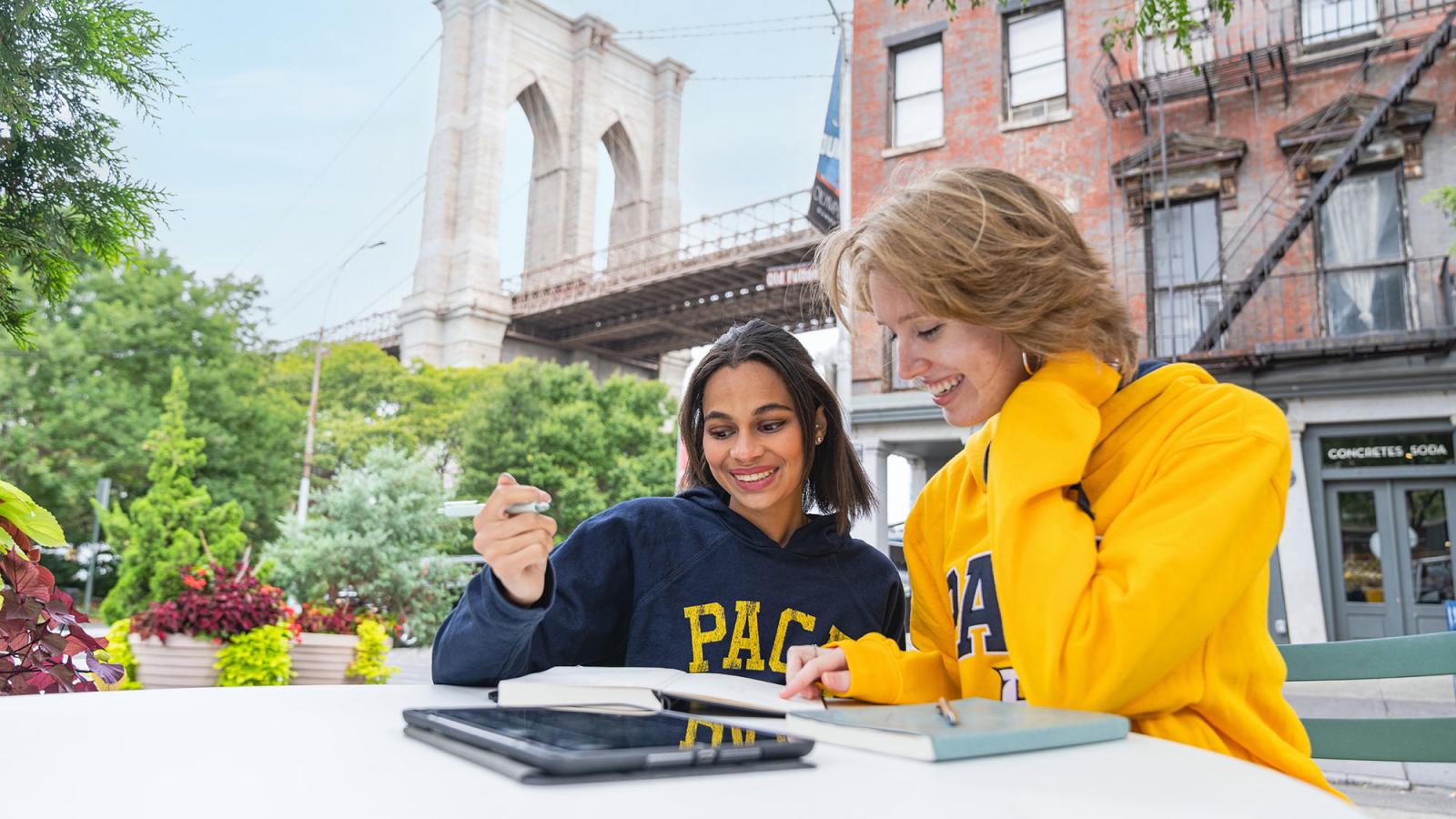
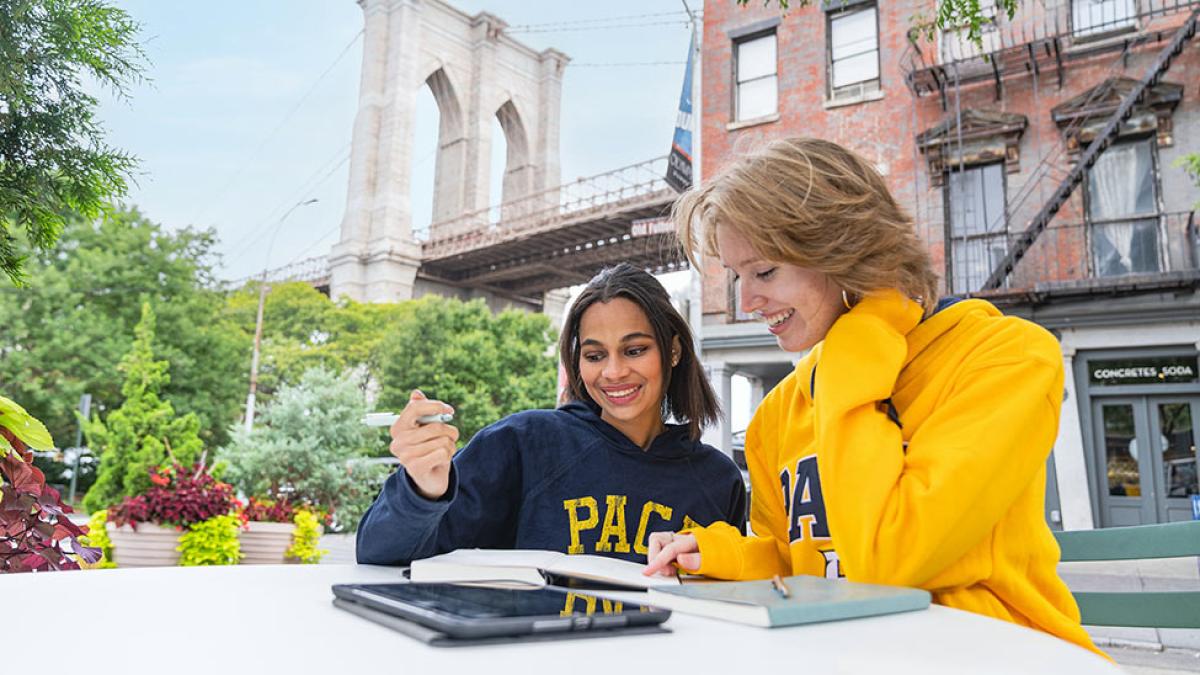
Funds to Support New Projects and Partnerships That Cement Pace as a Central Hub for Humanities in New York
Pace University was recently awarded $350,000 from the National Endowment for the Humanities (NEH) to advance experiential learning in humanities courses in partnership with cultural and service organizations in New York City. As a result, Pace University will serve as a central hub for humanities while showcasing its leadership in experiential education.
The two grants will fund the creation of new curriculum, teaching spaces, and projects that highlight the stories of marginalized people in the historical record through a series of public projects, such as the creation of oral histories, walking tours, digital maps and publications, websites, and community events.
“Pace is proud of our strong commitment to the humanities, civic engagement, and experiential learning,” said Pace University President Marvin Krislov. “These grants build on that foundation by recognizing the location of our University’s Lower Manhattan campus on unceded Lenape land and near the African Burial Ground. This grant will also support deeper exploration of our connections to the neighborhoods of Chinatown, Civic Center, Financial District, and South Street Seaport, in addition to providing our students with exciting new research opportunities to put the past in conversation with present challenges.”
A $150,000 grant supports a two-year project that brings Pace faculty together with staff from local cultural and service organizations—through the launch of a new Lower Manhattan Humanities Consortium (LMHC)-- to support and develop a portfolio of Pace undergraduate humanities courses, internships, and community engagement initiatives. LMHC partners include the NYC Department of Records and Information Services (DORIS), Municipal Archives Division; American Indian Community House; Bowery Residents’ Committee; Billion Oyster Project; South Street Seaport Museum; and Trinity Church Archives.
A second $200,000 grant will support the creation of three new teaching spaces for experiential humanities courses. More specifically, the funds will underwrite “The Ground Beneath Our Feet: Centering Place-Based Humanities in the Curriculum,” led by Director of Experiential Learning and the Pace Path and Associate Professor of English Kelley Kreitz, Ph.D., Assistant Provost for Research and Clinical Associate Professor of History, Maria T. Iacullo-Bird, Ph.D., and Co-Chair of the Department of English and Professor of English and Women’s and Gender Studies, Sid Ray, Ph.D.
The funds will support the construction of instructional spaces for humanities courses in Pace’s flagship building at 1 Pace Plaza in Lower Manhattan, led by Kreitz, Chair, and Professor of Film and Screen Studies Luke Cantarella, M.F.A., Associate Dean and Associate Professor of Art Charlotte Becket, M.F.A., Vice President for Development and Alumni Relations Gary Laermer, and Director of Campus Planning and Facilities Wayne Chen, AIA.
The experiential humanities approach is rooted in continuing innovations in Pace humanities courses and faculty-mentored research projects that address Pace University’s Lower Manhattan campus location.
According to Professor Ray, “We are focused on untold stories found in our partners’ archives and experiences: the oyster-farming Indigenous cultures that existed 14,000 years prior to the arrival of the Europeans, the first African Free Schools, and the African Theatre, Peale’s museum of curiosities, which included the first Chinese woman in New York City who was trafficked overseas and exploited, LGBTQIA+ folks forced to hide their truths for far too long, and our deep accountability to the people with whom we share our spaces, including the unhoused.”
Goals for the project include fostering community and collaboration among faculty, staff, students, and neighboring institutions; integrating the exploration of our neighborhood's past and present into our humanities core and degree programs; providing a model for enhancing the prominence of the humanities in higher education; and demonstrating how students trained in humanistic inquiry and methods are well prepared for graduate education and the twenty-first-century workplace.
“The Ground Beneath Our Feet project presents an opportunity on an unprecedented scale through LMHC partnerships to excavate the layered, intersecting, and often conflicting histories of Lower Manhattan,” said Assistant Provost Iacullo-Bird. “Undergraduate research will be embedded throughout the project in developing new interactive, research-infused, and immersive experiential learning.”
The new spaces will provide enhanced environments for courses that offer hands-on opportunities to learn in and with NYC communities—including a Storytelling Studio, Makerspace and Humanities Lab, and Multimedia Screening Room. The Storytelling Studio will serve as an updated seminar room, built for discussion, collaborative student projects, and hosting leaders of local cultural organizations and other community members. The Makerspace and Humanities Lab will enable students to explore and present their ideas through bookmaking and other forms of fabrication. The Multimedia Screening Room facilitates access to archival and new media in studying television, film, and related screen-based content.
“We are working toward a future in which the humanities are central within institutions of higher learning—and widely available within the daily lives of individuals and the shared experiences of communities,” said Kreitz. “We believe the humanities have a vital role to play in giving everyone a place in the world as makers of democracy.”
Both grants harness recent successes in the humanities at Pace to strengthen and center place-based, experiential learning. Total enrollment among first-year students entering Pace with a declared humanities major has been growing since Fall 2021. In spring 2023, Pace’s English department received national attention for its growth–by 47% in the past two years to about 150 majors–in defiance of national trends, which is credited to the program’s place-based, experiential approach.
The competition for the NEH awards was fierce: Pace is one of among roughly 30 institutions across the nation to receive funds for the distinct projects.
“It is my great pleasure to announce NEH grant awards to support 260 exemplary humanities projects undertaken by scholars, higher education institutions, and organizations of every size,” said NEH Chair Shelly C. Lowe (Navajo). “This funding will help preserve and expand access to community histories, strengthen the ability of small museums and archives to serve the public, and provide resources and educational opportunities for students to engage with history, literature, languages, and cultures.”
National Endowment for the Humanities
Created in 1965 as an independent federal agency, the National Endowment for the Humanities supports research and learning in history, literature, philosophy, and other areas of the humanities by funding selected, peer-reviewed proposals from around the nation. Additional information about the National Endowment for the Humanities and its grant programs.
About Pace University
Since 1906, Pace University has been transforming the lives of its diverse students—academically, professionally, and socioeconomically. With campuses in New York City and Westchester County, Pace offers bachelor, master, and doctoral degree programs to 13,600 students in its College of Health Professions, Dyson College of Arts and Sciences, Elisabeth Haub School of Law, Lubin School of Business, Sands College of Performing Arts, School of Education, and Seidenberg School of Computer Science and Information Systems.
MPA Professors Scutelnicu-Todoran and Tekula Receive Grant from Council of Family and Child Care Agencies
Professors of Public Administration Gina Scutelnicu-Todoran, PhD, and Rebecca Tekula, PhD, have been awarded a nearly $30,000 grant by the Council of Family and Child Caring Agencies (COFCCA) to assess the financial status of approximately 75 New York State agencies under its umbrella.
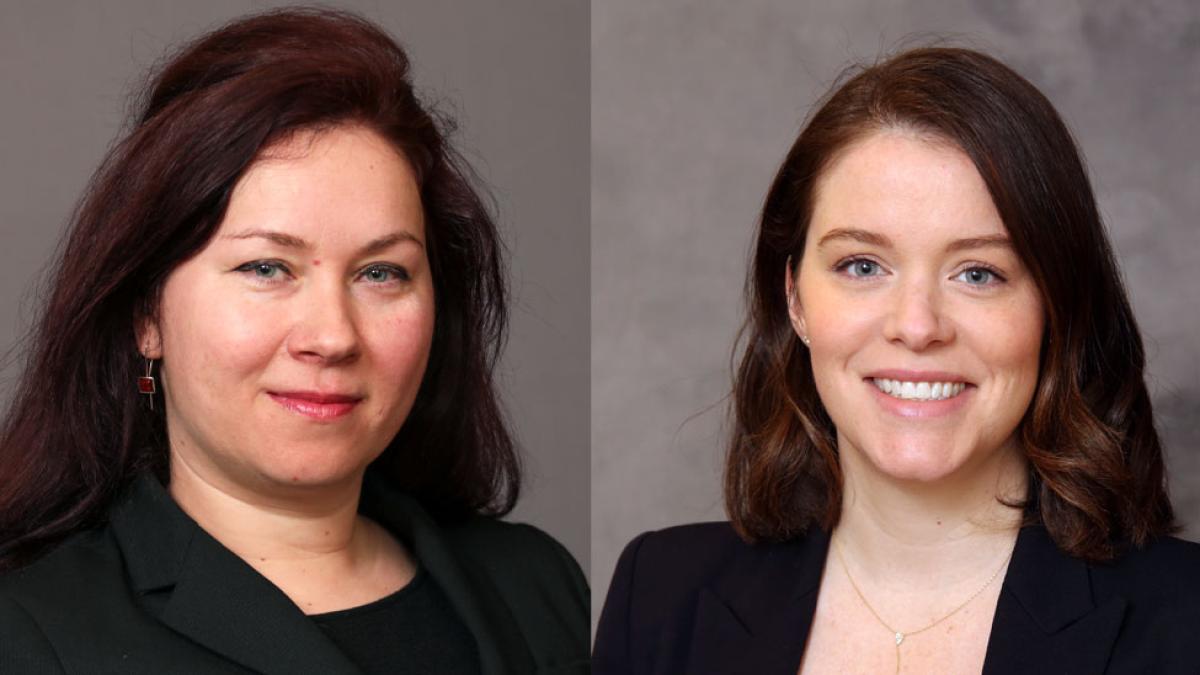
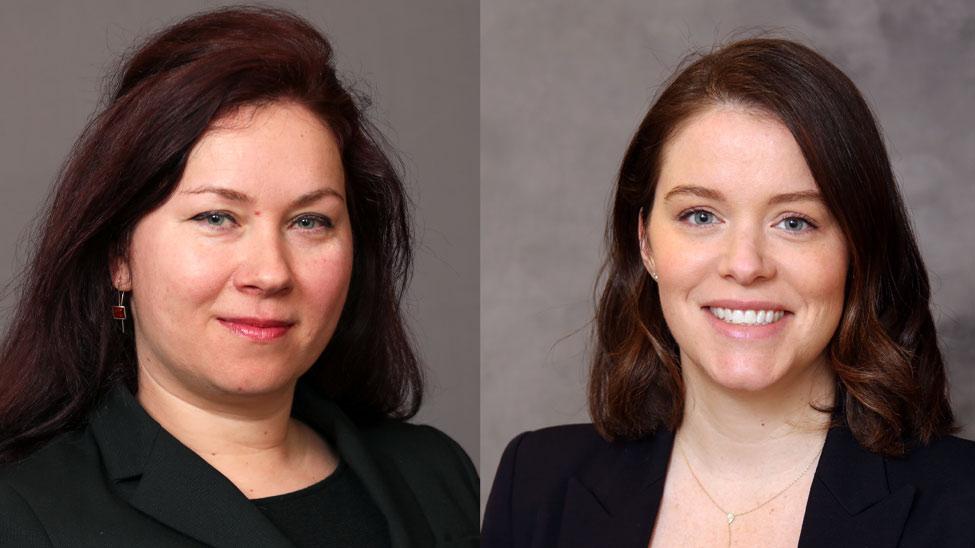
Professors of Public Administration Gina Scutelnicu-Todoran, PhD, and Rebecca Tekula, PhD, have been awarded a nearly $30,000 grant by the Council of Family and Child Caring Agencies (COFCCA) to assess the financial status of approximately 75 New York State agencies under its umbrella. These agencies provide child welfare services, including foster care, preventive services, and juvenile justice services.
"We are honored to receive this grant,” said Tekula, who is the director of Pace University’s Master of Public Administration program and the executive director of Pace's Wilson Center for Social Entrepreneurship. “This work is not just about financials; it's about ensuring that agencies providing essential services to our most vulnerable populations—children in foster care, preventive services, and juvenile justice—are financially equipped to meet their needs effectively.”
Scutelnicu-Todoran and Tekula will work in collaboration with two Pace graduate students to conduct a financial analysis of cumulative organizational revenues and expenditures, endowments, and other investments. Through this opportunity, these students will gain valuable skills in navigating complex financial data, interpreting fiscal health, and understanding the broader implications of financial management in sustaining social services.
“The opportunity for these students to contribute to a project with such profound social impact is extraordinary,” said Scutelnicu-Todoran. “Their involvement will prepare them for future leadership roles in public and social service, equipping them with the knowledge and skills to make meaningful contributions to society.”
The Pace researchers began work on the grant on February 1. Upon completion of the project in October, the researchers from Pace will prepare a final report and deliver presentations to executive and legislative leadership at the New York State and New York City levels. Their goal is to inform these stakeholders of the financial realities and needs of these agencies and to advocate for and influence budgetary decisions related to child welfare and juvenile justice.
Haub Law Faculty, Alumni, and Affiliates Rank Among the 2024 Lawdragon Green 500: Leaders in Environmental Law
The Elisabeth Haub School of Law at Pace University is proud to announce that Achinthi Vithanage, Associate Director of Environmental Law Programs & Adjunct Professor at Haub Law, was named to the 2024 Lawdragon Green 500: Leaders in Environmental Law.
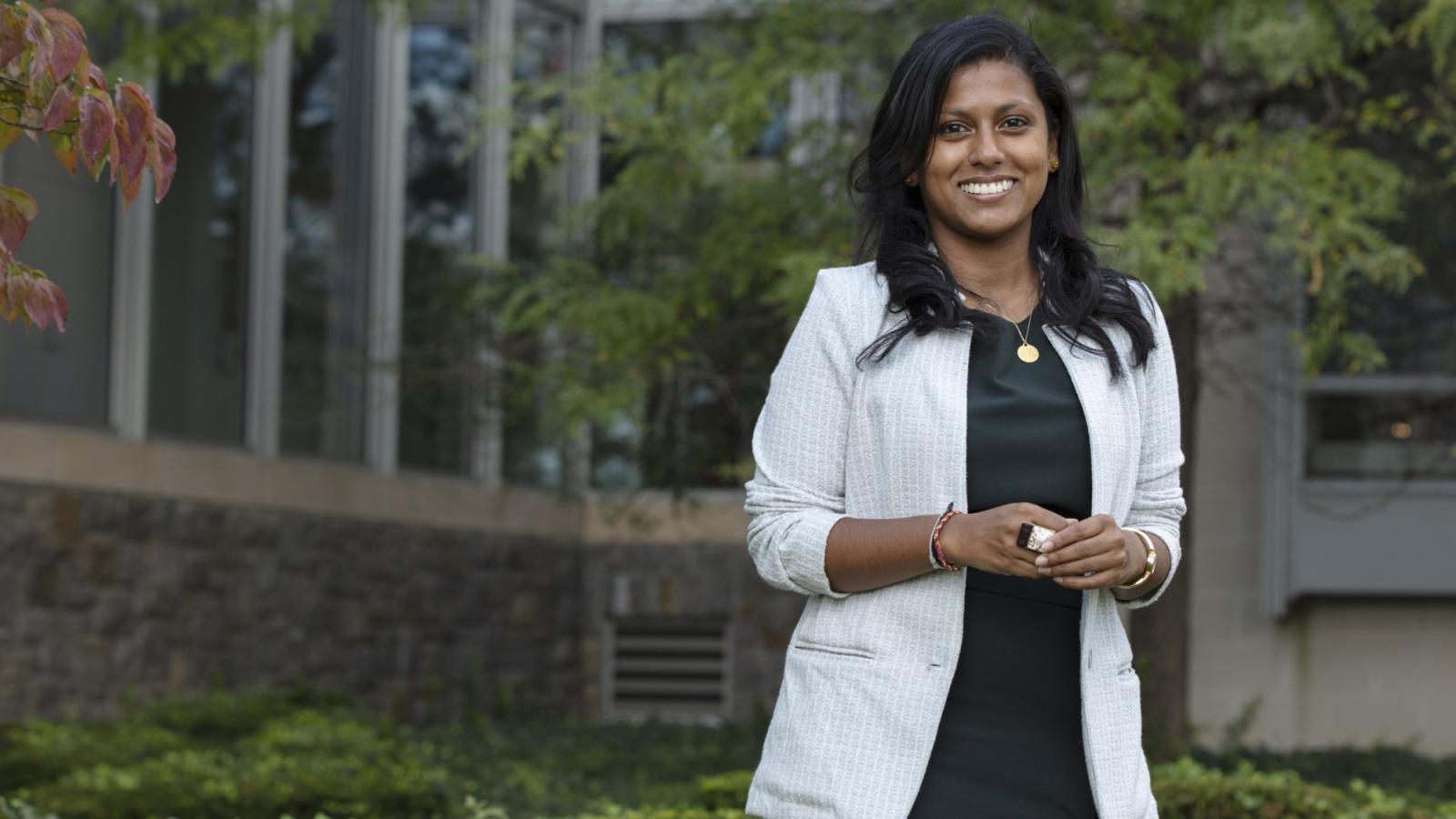
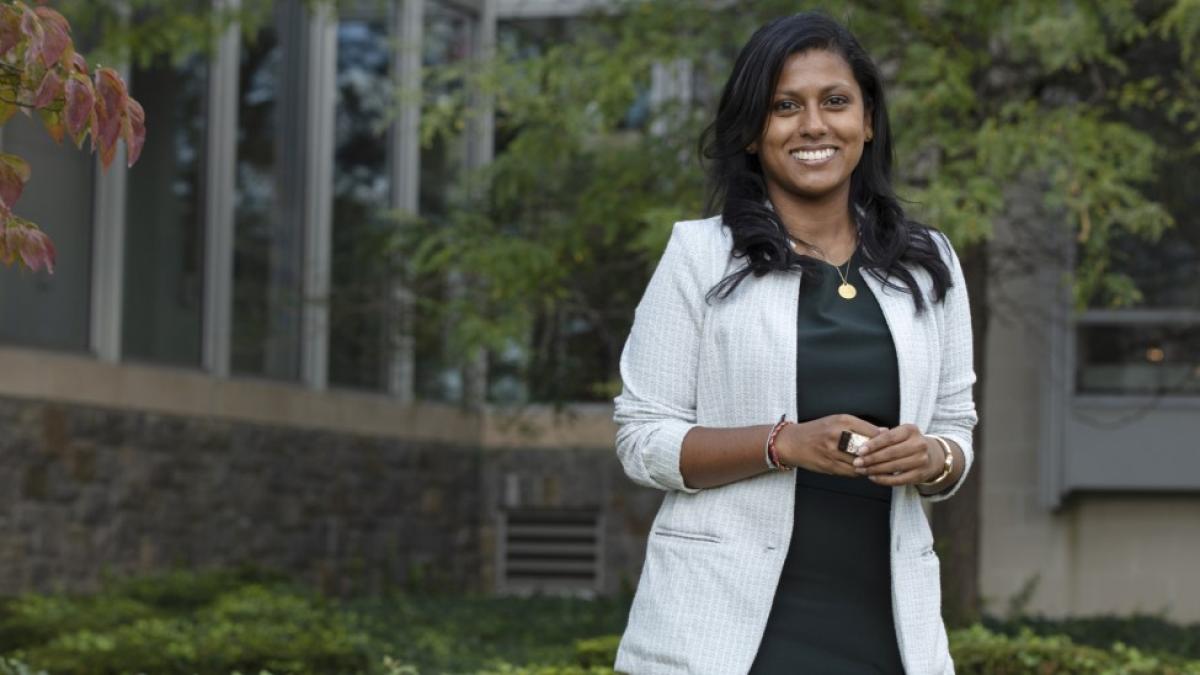
The Elisabeth Haub School of Law at Pace University is proud to announce that Achinthi Vithanage, Associate Director of Environmental Law Programs & Adjunct Professor at Haub Law, was named to the 2024 Lawdragon Green 500: Leaders in Environmental Law. Since featuring on the inaugural Law Dragon 500 Leading Environmental & Energy Lawyers list in 2021, Professor Vithanage has been recognized on this list for three consecutive years. In addition to teaching International Environmental Law and Environmental Externship seminars and directing the top ranked environmental law program in the country, she is also an Advisory Board Member of Haub Law’s Sustainable Business Law Hub. Professor Vithanage also serves on the Council for the ABA’s Section of Environment, Energy, and Resources, and is a founding Co-Chair of the Environmental Law Society Network. Most recently, she was selected to attend COP28 in Dubai as one of two in-person delegates sent by the ABA, presenting on panels discussing the expanding role of lawyers and law associations in combating the climate crisis.
The prestigious list is comprised of 500 lawyers carefully selected and based on journalistic reporting, nominations, and vetting with peers and experts in environmental law. “I am honored to be recognized among the top environmental leaders in the country, all of whom are making strides each day towards governance, accountability, and action on environmental issues,” said Vithanage.
Also included on the list are Haub Law alumni, Anne Carpenter ’09, Partner, Baker Botts, Samuel Brown ‘07, Partner, Hunton Andrews Kurth, and James May ’91 (LLM), Distinguished Professor of Law, Founder of the Global Environmental Rights Institute, and co-Founder and co-Director of the Dignity Rights Project and the Environmental Rights Institute at Widener University Delaware Law School and former Haub Visiting Scholar and Visiting Professor at Haub Law.
“We are once again so proud to have some of Haub Law’s environmental leaders recognized on the annual Lawdragon Green 500 list,” said Jason J. Czarnezki, Kerlin Distinguished Professor of Environmental Law, and Associate Dean of Environmental Law Programs and Strategic Initiatives. “It is the leadership of our faculty, alumni, affiliates, and colleagues that will help to lead us toward a greener and more sustainable future. Haub Law has long been a leader in the field of environmental law, remaining committed to advancing forward thinking and impactful environmental law and policies, and we thank Lawdragon for recognizing the impact that Haub Law’s leaders have had and continue to have on the environmental field and beyond.”
The 2024 Lawdragon Green 500 list also included other Haub Law affiliates, including: Former Director of Haub Law’s Environmental Law Program, Alexandra Dapolito Dunn, Partner, Baker Botts, 2021 Haub Law Environmental Law Distinguished Junior Scholar and 2022 Lloyd. K Garrison Lecturer on Environmental Law, Sharmila Murthy, Director for Environmental Justice in the White House Council on Environmental Quality, and 2022 Gilbert and Sarah Kerlin Lecturer on Environmental Law, Roger Martella, Chief Sustainability Officer for GE.
Legal Scholar: New Jack Smith Filing Exposes Trump's "Frivolous" Defense
It is “commonplace” in criminal litigation that when the defense has a “weak case,” they attack the prosecutor, Bennett Gershman, a former New York prosecutor and law professor at Pace University, told Salon. Here, the defense is claiming that the prosecution had failed to disclose evidence that Trump had a security clearance to retain documents at Mar-a-Lago and that the White House and other federal agencies possessed critical but undisclosed information relevant to the defense case.
The Best Military/Veteran Friendly Nursing Schools in the Nation – 2024
Nursing Process ranks Pace University as the fourth best military/veteran friendly nursing school in the nation for 2024.
A Brief Legal History of Wisconsin Conservation
Professor Jason Czarnezki's article, co-authored with 3L Carolyn Drell, was published in the Marquette Law Review. The article examines the legal history of Wisconsin conservation — how the state’s conservation values were expressed in law, how its natural resources law has evolved and what that has (and has not) embodied, and how Wisconsin helps us define modern concepts of “conservation.”
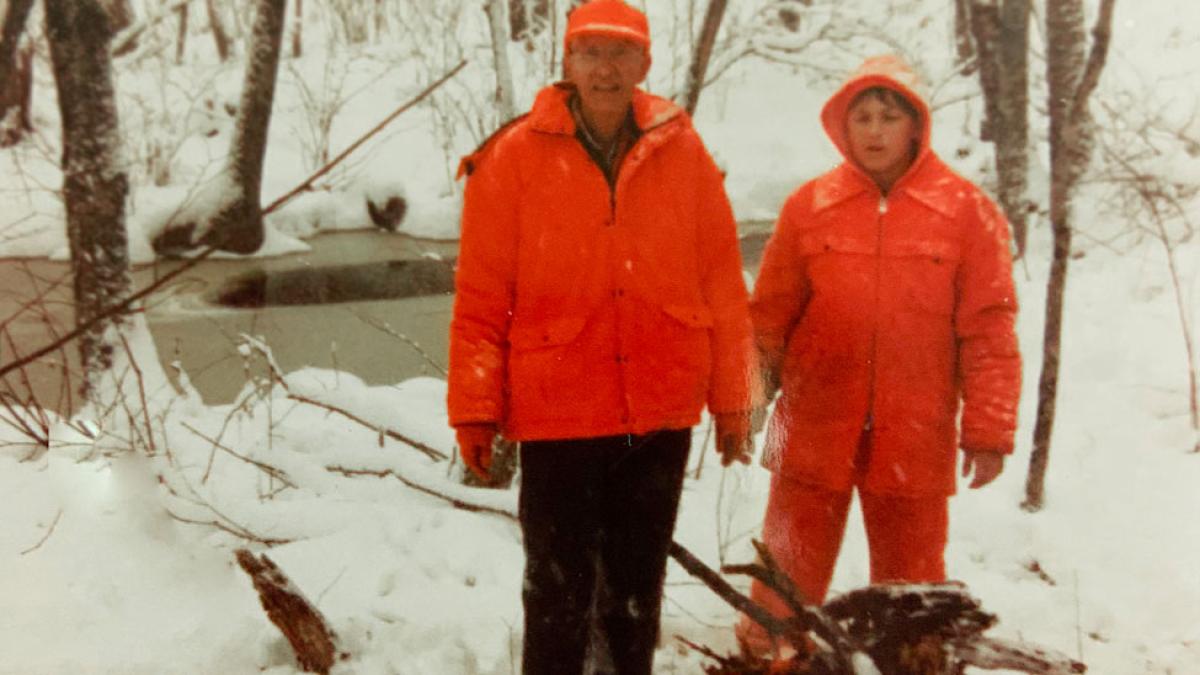
The Lawdragon Green 500: The 2024 Leaders in Environmental Law
Associate Director of Environmental Law Programs, Achinthi Vithanage, was selected to the 2024 Lawdragon 500 Leading U.S. Environmental Lawyers guide for the 3rd year in a row.
Disappearing Rites
Dyson Professor Seong Jae Min pens an op-ed in The Korea Times about traditional holiday rituals and gatherings rapidly going out of fashion in Korea.
